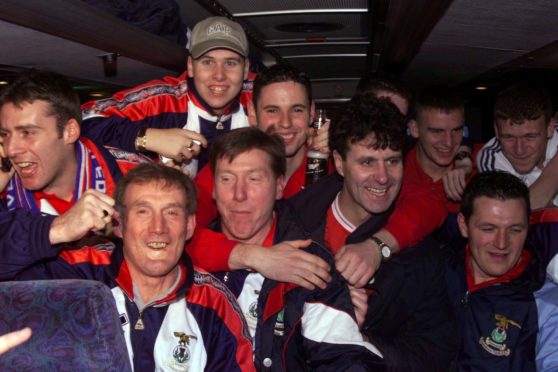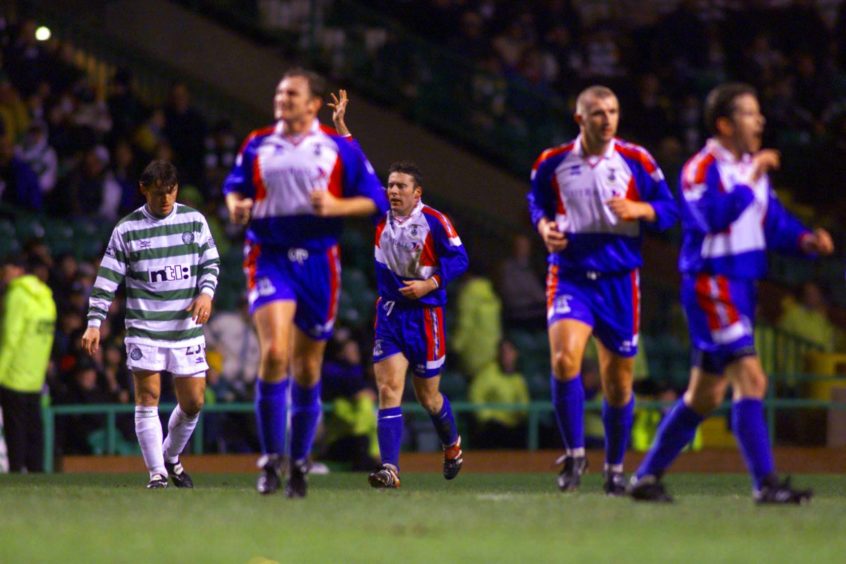It was described as the moment Caley Thistle arrived in Scottish football and it happened 19 years ago today.
On February 8, 2000, Inverness travelled to Glasgow to take on John Barnes’ struggling Celtic team in the Scottish Cup fifth round.
Despite the hosts’ woes, no one gave the part-time Highlanders a chance of laying a glove on their more illustrious opponents.
But in the end they did more than that, putting on a brilliant performance to pull off one of the greatest shocks in Scottish football history.
The 3-1 win cost Barnes his job and brought the Caley Jags international attention, famously prompting the Sun newspaper headline “Super Caley go ballistic Celtic are atrocious”.
Already called off several days earlier because of a safety risk concerning Celtic Park’s roof, this match took place on a Tuesday night in brutal conditions.
Despite the sleet and wind, Caley Thistle were right up for it and took the lead on 16 minutes.
Paul Sheerin scampered down the wing and his pinpoint cross was headed in by now ICT coach Barry Wilson.
The opener jolted Celtic to life and Mark Burchill restored parity just a minute later with a fine finish.
But when Bobby Mann’s header from a corner was diverted past Celtic keeper Jonathan Gould by Lubomir Moravcik on 24 minutes to make it 2-1 to the visitors, suddenly a victory seemed a lot less improbable.
What went on in the Celtic dressing room at half-time is still not totally clear to this day but Aussie striker Mark Viduka failed to reappear for the second half – apparently after a fallout with assistant manager Eric Black.
A second half penalty from Sheerin put the icing on the cake and Inverness keeper Jim Calder deserved a lot of credit for a string of impressive saves that helped his side get over the line.
After the match, Caley Thistle boss Steve Paterson insisted: “This was no fluke.”
“The players were magnificent. The players deserved to win on the night – there is no question about that.
“It was an unbelievable occasion and a magnificent day for the club. I think this is the moment Inverness arrived in Scottish football.”
He wasn’t wrong. Four years later the club clinched promotion to the top flight for the first time and in 2015, the club won its first-ever Scottish Cup and competed in Europe.
Struggles in recent years have made those good times seem pretty distant, but the current squad could do worse than hark back to February 8, 2000 for a feel-good story about how quickly things can change as they prepare to line up against Ross County in the Scottish Cup on Monday night.

